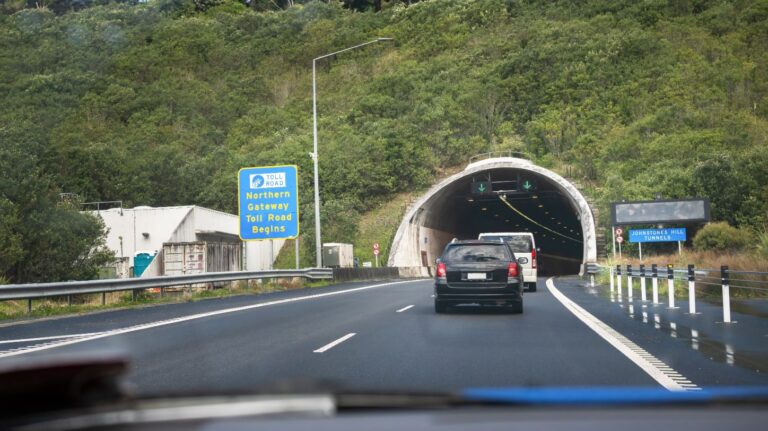The New Zealand Transport Agency (NZTA) is developing a national tolling plan to help fund and accelerate the delivery of new road infrastructure projects, following direction from the country’s cabinet.
As outlined in the government’s 2024 Revenue Action Plan and confirmed in documents released by the Ministry of Transport, NZTA has been instructed to consider tolling for every new state highway project to relieve pressure on the National Land Transport Fund and enable faster construction of key transport corridors.
Currently, three roads in New Zealand operate with tolls: the Northern Gateway, the Tauranga Eastern Link and Takitimu Drive. These were established under separate legislative frameworks, with tolling permissions dating back to 2005, 2009 and 2015 respectively.
Under the new national plan, NZTA would apply tolls to new corridors and road extensions as a matter of policy, enabling what it described as a more consistent, scalable approach to user-pays infrastructure funding.
The proposed framework also includes the option to introduce corridor-based tolling, inflation-indexed charges, and requirements for heavy vehicles to use tolled routes to reduce congestion and emissions in residential areas.
Cabinet has authorised key policy reforms allowing tolling across upgraded corridors and mandating that toll roads offer a viable, toll-free alternative route.
According to Ministry of Transport briefings, NZTA is preparing to seek cabinet approval for legislative drafting instructions later this year, with the aim of introducing new tolling legislation by 2026.
Transport minister Simeon Brown said the government’s approach aims to unlock more efficient and targeted investment in road infrastructure: “Tolling is a tool used around the world to accelerate investment in roading infrastructure, and the changes the government is making will allow this approach to be applied in New Zealand more effectively.
“The government is taking a user-pays approach, which optimises toll revenues to build the modern roading infrastructure ,which will improve economic productivity by helping Kiwis get to where they want to go quickly and safely.”
FREE: Subscribe to the monthly Road User Charging Conference Newsletter!
The government is also exploring the use of public-private partnership models, where private consortia design, finance, build, operate and maintain road infrastructure in exchange for toll revenue over a concession period.
Speaking about this potential, transport minister Chris Bishop said: “This government is committed to investing in high-quality transport infrastructure. We are exploring a range of tools – such as toll road concessions – to help achieve this.”
While the framework allows for tolling across new and upgraded corridors, NZTA has clarified that there are no current plans to introduce tolls on existing roads.
“There is no reference in the National Tolling Plan to the tolling of existing roads,” the agency said, reaffirming that the proposals are limited to future infrastructure and do not contemplate retroactive tolling of completed routes.
Upcoming road projects expected to be tolled include the Takitimu North Link, Ōtaki to north of Levin, Mill Road in Auckland and Penlink. Each of these schemes will include a free, untolled alternative route for motorists, as required by current legislation. NZTA has already consulted the public on tolling proposals for some of these corridors.
“Understanding community views is essential for these tolling proposals. We strongly encourage anyone affected or with an interest in the proposed tolls to make a submission,” said NZTA’s tolling team in a recent consultation document.
Public consultation and legislative processes are expected to continue throughout late 2025 and into 2026.
Discover the key trends and challenges shaping the future of user-financed transportation –spanning tolling, road pricing and usage-charges – at Akabo Media’s global Road User Charging Conference series. Join senior decision-makers from around the world as they tackle the issues defining the industry in Miami (September 2025), Singapore (October 2025), Brussels (March 2026), and Abu Dhabi (May 2026). Gain invaluable insights, share innovative ideas and network with global leaders driving the transformation of transportation systems. Click here to learn more and secure your place at these unmissable events!





